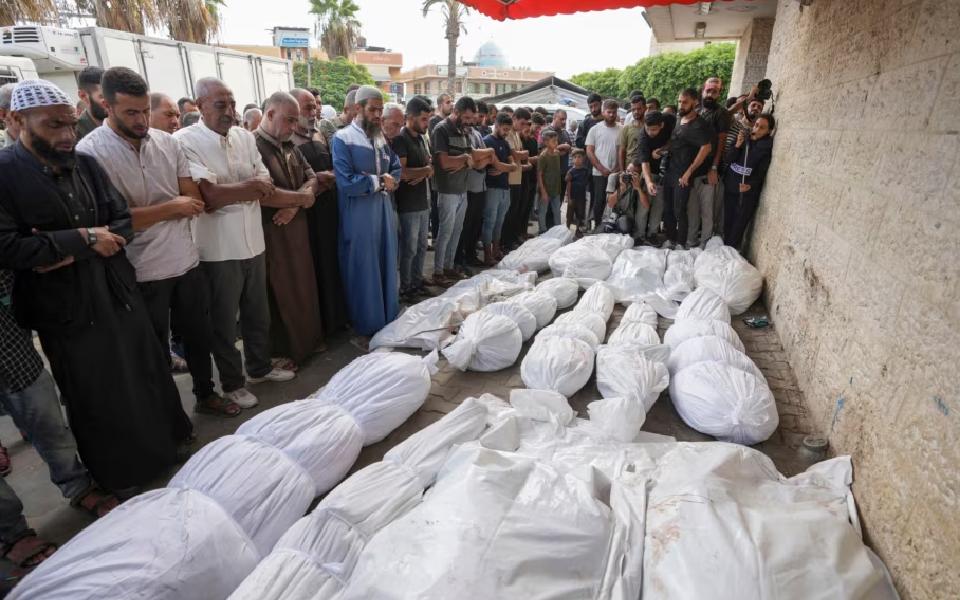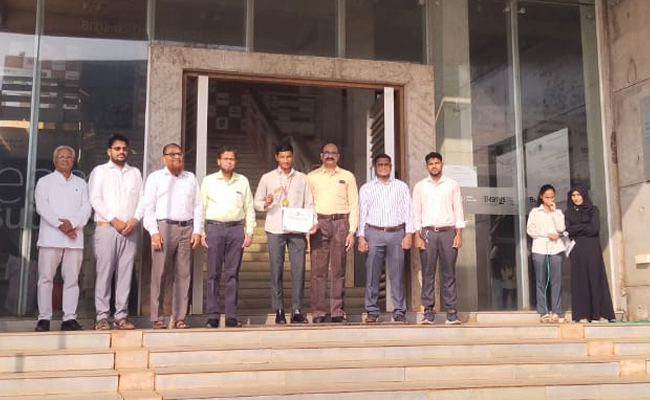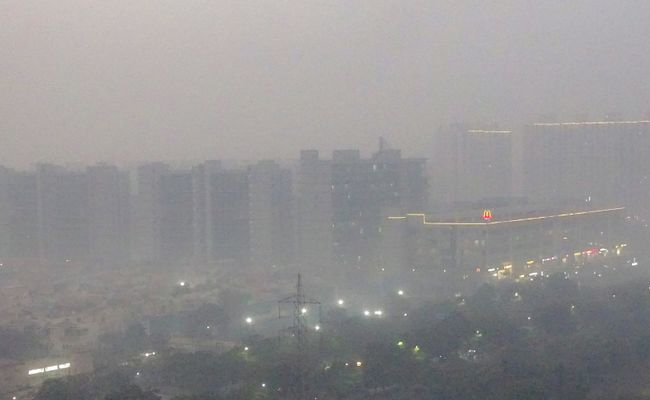Deir al-Balah (Gaza Strip), Aug 17: As mediators expressed optimism for an imminent cease-fire deal between Israel and Hamas, violence raged on Saturday in the Gaza Strip, where an Israeli airstrike killed at least 18 people, all from the same family.
The attack came days after the Health Ministry in Hamas-run Gaza announced the death toll surpassed 40,000 in the 10-month-old war, and hours after officials from the United States, Egypt and Qatar ended two days of cease-fire talks with a message of hope that a deal could be reached.
A joint statement from the mediators said a proposal to bridge the gaps between Israel and Hamas was presented and they expected to work out the details of how to implement the possible deal next week in Cairo.
The mediation efforts are aimed not just at securing the release of scores of Israeli hostages and stopping the fighting that has devastated Gaza, where aid and health workers fear a possible polio outbreak. They are also aimed at calming regional tensions that have threatened to explode into a broader war if Iran and Hezbollah group in Lebanon attack Israel in retaliation for the recent killings of top leaders.
Saturday's airstrike in Gaza hit a house and adjacent warehouse sheltering displaced people at the entrance to Zawaida town, according to the Al-Aqsa Martyrs Hospital in Deir al-Balah, where casualties were taken. An Associated Press reporter there counted the dead.
Among those killed was Sami Jawad al-Ejlah, a wholesaler who coordinated with the Israeli military to bring meat and fish to Gaza. The dead also included his two wives, 11 of their children ages 2 to 22, the children's grandmother and three other relatives, according to a list provided by the hospital.
“He was a peaceful man,” said Abu Ahmed, a neighbor who was slightly wounded. More than 40 civilians were sheltering in the house and warehouse at the time, he said.
AP footage showed bulldozers removing rubble from the heavily damaged warehouse.
The Israeli military, which rarely comments on individual strikes, said it was checking the report. It said Saturday it was continuing attacks on Hamas group in central Gaza, including one seen launching rockets at troops.
Meanwhile, another mass evacuation was ordered for parts of central Gaza. In a post on X, Israeli military spokesperson Avichay Adraee said Palestinians in areas in and around the urban Maghazi refugee camp should leave. He said Israeli forces will operate in them in response to Palestinian rocket fire.
The vast majority of Gaza's population has been displaced by the fighting, often multiple times, and around 84% of the territory has been placed under evacuation orders by the Israeli military, according to the United Nations.
The war began when Hamas-led group stormed across the border on Oct 7, killing about 1,200 people, mostly civilians, and abducting 250 to Gaza. More than 100 were released in a November cease-fire. Around 110 are believed to be in Gaza, though Israeli authorities believe around a third are dead.
Israel says it has killed more than 17,000 Hamas members, without providing evidence.
Gaza's Health Ministry said Saturday at least 40,074 Palestinians have been killed in the war. The ministry does not distinguish between fighters and civilians.
Mediators have spent months pursuing a three-phase plan in which Hamas would release the hostages in exchange for a lasting cease-fire, the withdrawal of Israeli forces from Gaza and the release of Palestinians imprisoned by Israel.
Efforts took on new urgency in recent weeks as diplomats hoped a deal would persuade Iran and Lebanon's Hezbollah to hold off on retaliating for the killing of a top Hezbollah commander in an Israeli airstrike in Beirut and of Hamas' top political leader in an explosion in Tehran that was widely blamed on Israel.
Israel and Hezbollah have traded fire since the war started, and an Israeli strike Saturday killed at least 10 Syrians, including a woman and her two children, Lebanon's Health Ministry said. Israel said it targeted a Hezbollah weapons depot.
In what appeared to be a sign of confidence, mediators were beginning preparations for implementing the cease-fire proposal even before it was approved, said an American official, who spoke on condition of anonymity in keeping with rules set by the White House.
The official said an “implementation cell” was being established in Cairo to focus on logistics — including freeing hostages, providing humanitarian aid for Gaza and ensuring the deal's terms are met.
But Hamas cast doubt on whether an agreement was near, saying the latest proposal diverged significantly from a previous iteration they had accepted in principle.
Both sides agreed in principle to a plan announced on May 31 by US President Joe Biden. But Hamas has proposed amendments, and Israel has suggested clarifications, leading each side to accuse the other of trying to block a deal.
The US official said the latest proposal is the same as Biden's, with some clarifications based on ongoing talks. The way it's structured poses no risk to Israel's security but enhances it, he added.
Hamas has rejected Israel's demands, which include a lasting military presence along the border with Egypt and a line bisecting Gaza where it would search Palestinians returning to their homes to root out potential threats.
But Israel showed flexibility during the talks on retreating from the border corridor, and a meeting between Egyptian and Israeli military officials was scheduled for the following week to agree on a withdrawal mechanism, according to two Egyptian officials, who spoke on condition of anonymity because they were not authorised to discuss the private negotiations.
Israel insisted on keeping control of the road bisecting Gaza, but US mediators vowed to return to the talks next week with a compromise on that demand, the officials said.
As part of diplomacy aimed at securing the deal, French Foreign Minister Stéphane Séjourné met with Egyptian Foreign Minister Badr Abdelatty in Cairo on Saturday.
US Secretary of State Antony Blinken planned to travel to Israel over the weekend and was expected to meet with Israeli Prime Minister Benjamin Netanyahu on Monday.
Let the Truth be known. If you read VB and like VB, please be a VB Supporter and Help us deliver the Truth to one and all.
New York/Washington (PTI): US President Donald Trump has repeated his claim of resolving the India-Pakistan conflict and asserted that Islamabad's leadership credited him for saving millions of lives.
"We stopped a potential nuclear war between Pakistan and India. And the head of Pakistan, a highly respected General, he's a Field Marshal and also the Prime Minister of Pakistan, said President Trump saved 10 million lives, maybe more...,” Trump said Monday.
He made these remarks at Mar-a-Lago, Florida, flanked by Defence Secretary Pete Hegseth, Navy Secretary John Phelan, and Secretary of State Marco Rubio.
“You know, eight planes were shot down. That war was starting to rage, and he actually said the other day that President Trump saved 10 million lives, maybe more. So we solved all these wars. The only one I haven't solved yet is Russia, Ukraine,” he said.
ALSO READ: Man murders colleague, dumps body in water tank in Palghar; held
Since May 10, when Trump announced on social media that India and Pakistan had agreed to a “full and immediate” ceasefire after a “long night” of talks mediated by Washington, he has repeated his claim over 60 times that he “helped settle” the tensions between the two neighbours.
New Delhi has consistently denied any third-party intervention.
India launched Operation Sindoor on May 7, targeting terror infrastructure in Pakistan and Pakistan-occupied Kashmir in retaliation for the April 22 Pahalgam attack that killed 26 civilians.
India and Pakistan reached an understanding on May 10 to end the conflict after four days of intense cross-border drone and missile strikes.





